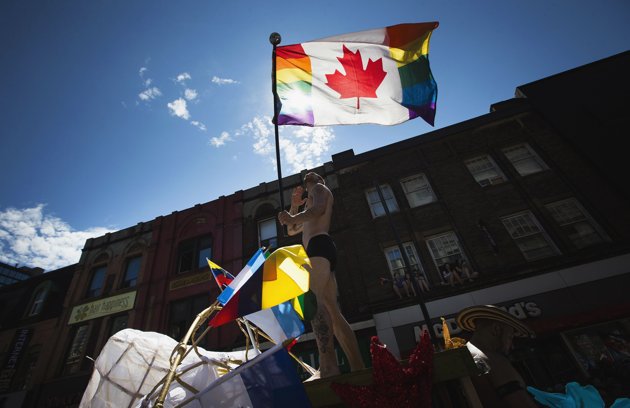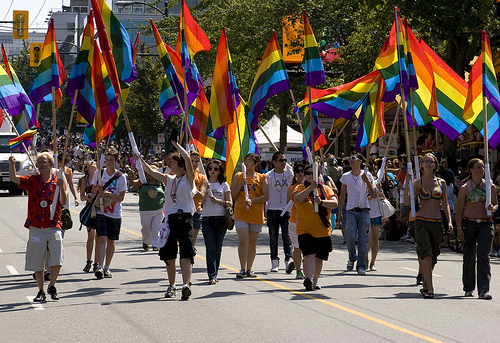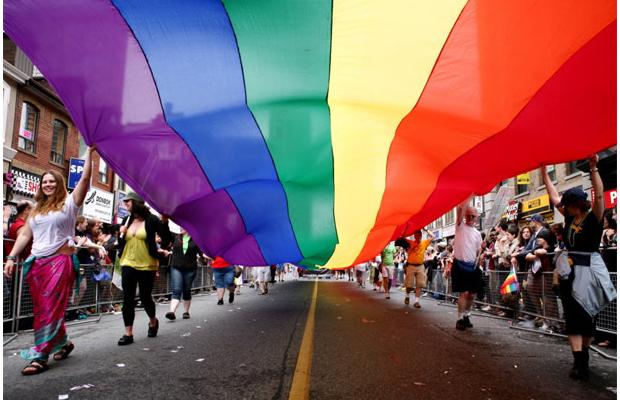Coming out is a difficult, but often liberating process. Queer people of color, however, are challenged with navigating between their sexual orientation and their ethnic identity. Ngoc Linh recalls the time when she first came out to her mother.
Have you subscribed to diaCRITICS yet? Subscribe and win prizes! Read more details.
I didn’t know I was gay until I was 17 years-old and found myself crying, “I’m a homosexual” in the middle of a Vietnamese restaurant while having lunch with my Mom. Sometimes it seems like this story should start at another time, like when I was 5 and insisted on wearing only my brother’s shirts, or that period in college when I had to get fucked out of my mind on MDMA and alcohol to go to queer parties after Chemistry class. There’s something about saying it aloud, though, naming that part of you, and watching it travel to the ears of the most important person in your life that makes coming out of the closet for the first time so real. It’s not like I was any gayer in college than I was at 11 (I spent that year casually obsessing over Mandy Moore.), but coming out of the closet is generally seen as the first step to living an honest life, so I thought I’d start there. It’s a strange concept though, the idea that once you can name your desires, you are freer to pursue them. If you can name your burdens, you can share them and take a load off your shoulders. If people, whether this means the medical community, the law, or just your loved ones, could just hear you out and connect your words and actions to humanness, then you’ll be closer to political and social freedom.
Except I didn’t feel that lightness or sense of relief that I’ve heard so many experience when coming out of the closet. It felt more like a balloon being popped by that bratty kid at your cousin’s wedding. Red, crying, breathless, and ashamed of its own ugliness. And sure enough, the look on her face made me want to throw up. As children born in Canada to refugees of the Vietnam War, my siblings and I were told stories of my parents’ suffering and unbelievable will to live in the face of hopelessness. It was so that we recognize our unearned privileges as Canadians, and honour what was sacrificed to get here. We are to repeat these stories to our own children one day, it seems, so that they know how much it took to exist at all. One effect of our efforts to carry the weight of this legacy, though, was a hardwired sense of shame towards our own expressions of pain. We were taught that there were very few legitimate reasons to cry when we had parents who escaped a war for us to live in safe suburbia. So, crying at anything less than near destruction was seen as a ridiculous and ungrateful act of fraudulence. In fact, it used to earn us a solid slap across the face, or at least a good spanking with a spatula, which later gave me an automatic reaction of nausea in expectation of punishment and shame every time I cry. And maybe it should be that way. After all, my mom’s generation didn’t go through war and migration for me to cry while eating a bowl of phở I didn’t have to pay for. This inadvertently set the framework with which I was to understand my own queerness as well. I wasn’t sure if I felt sick because I felt ashamed of crying, or because I felt ashamed of being gay. Either way, there I sat, crying and hating myself for it.
I thought, if she slaps me, which she’s done for less, I won’t even feel it. Perfect. Just wait for her.
But nothing happened. She didn’t acknowledge what I had just said. At least not directly. After what felt like enough time to resist yelling at me in public, she told me how phở here in Canada had too much MSG. “For white people taste good. Everything come from them. Also for them. You remember that,” she said. Then she drove me home in silence.
If you ever get the chance to meet my mom, you’d best learn to get used to receiving finality rather than clarity from her. Most of what my mom actually means lies in the lingering air she leaves when she stops talking–a painfully mysterious ellipsis you’re supposed to gather meaning from. It gives her a sense of authority that convinces people to listen to her, regardless of how serious or playful she is. So, if my mom tells you to turn on the lights so that the ancestors can see the mangoes we left for them (a command issued quite often in my house), you do it even if you don’t know what the hell she’s talking about. It’s also safe to say she will not take part in subsequent conversations about ghosts being able to or not being able to see in the dark. Once she says her metaphorical-spiritual-read-between-the lines piece, she’s done. That’s all you get. Forever. I’ve thought about what she said that day for years. Maybe she thought queerness was like a gateway drug to the more serious, whitewashed fate of “Hipsterdome.” It wouldn’t be surprising if she did, considering she’s part of a generation of Vietnamese people that likely still think homosexuality is a disease that can only be found in white people or in Western nations. Queer liberation politics in Canada doesn’t ease that tension either. We’re often heralded as an inclusive, multicultural, welcoming nation that takes pride in our socialized healthcare and our relatively early recognition of same-sex marriage. And it’s true, our national rhetoric supports immigrants, people of colour, and LGBTQ (lesbian, gay, bisexual, transgender, and queer) people alike. A deeper look into what we actually talk about, though, reveals a disconnect between LGBTQ people and citizens or migrants of colour—namely, homophobia itself is often portrayed as a racialized phenomenon that seems to not only prove how “unprogressive” or “backwards” immigrant communities are, but also serve as a method of exalting (white) Canadians to the status of saviours and protectors of modern rights. Between the media clinging onto stories of homophobia in communities that have “different cultural values” from those of “actual” Canadians, and the relatively silent or inexistent responses from LGBT groups when there are instances of violence or injustice against those communities, public discourse treats homophobia and racism as mutually exclusive phenomenon that do not happen to one person at the same time.
While my mom’s diasporic existence in both Vietnam and Canada informs her perception of homosexuality, she’ll probably never give me clues as to how so. The problem is that we won’t ever have those conversations. I’ll never really know what she meant by Canadian phở having too much MSG or if she was even talking about queerness when she said that. Our understandings of gender, sexuality, pain, and desire, and the language we use to speak them will never reconcile because so many of our words go missing, unheard, or unsaid. They just drift, contemplating the sky as they barely stay afloat somewhere between here and Vietnam, which neither of us can reach any more. Sometimes I think we all lost a part of ourselves on those boats.
To this day, I still wonder if I had said it at all. That conversation was never spoken of again. It seemed like my words were just swallowed up by the room of disinterested guests, who all pretend to like each other, but really don’t mind if they were never to meet again. The buzz of chit chat and drunk laughter is loud enough to make any balloon pop unnoticeable. But in the end, no interaction, temporary friendship, or memory of your dad’s 7th brother’s niece visiting from Viet Nam really lingers in your mind after leaving. The party just goes on without a hitch, and all the balloons and banners, and the over-inebriated get swept up. Everyone goes back to work. For the most part, my mom and I simply continued to talk and laugh like we did before I told her. We were happy, but she didn’t really know me anymore because a part of me was lost in silence, drowned out.
Coming out to my mom didn’t make me free. It made me lonely. Perhaps naming who we are for the sake of political, social, and personal freedom isn’t really why we do it. After all, naming ourselves can lead to further violence or regulation, whether by the state, that guy walking behind you on the street, or by our parents. I think, maybe, we’re just scared of the opposite. Scared that the words might not exist at all. That we can’t name what happens to our bodies, or have language to speak our desires, or our love. Because if being queer is ineffable, then our very existence becomes an impossibility. Right?
To tell you the truth, I don’t know. But for me, the answer, like most things in my life, lies somewhere between, in both, and in neither. Somewhere between political freedom and state regulation; between the whiteness of Western queer liberation and being scared shitless of being anywhere that doesn’t use the same rhetoric; between my generation and my mom’s; between being too Asian to be gay and too Western to be Viet. Really, what it often comes down to is a feeling of simply being too crazy for what appears to be a sane world.
The next time I would meet my mom for lunch was years later, when I brought home my (white) girlfriend for the first time. Coincidentally also for phở. She watched as my girlfriend used chopsticks, and dipped her chả giò in nước mắm without saying much. When we were done, she told me to go pay at the front. I hesitated for a second, and got up to pay. I looked over my shoulder, worried one of them would somehow implode from awkwardness, but instead saw something amazing—laughter. Laughter, of all things! I don’t even care if my mom was making fun of my sagging pants, or making some racist remark about how impressed she is that this girl could eat nước mắm. This was a victory for me.
The “out and proud” paradigm of queer liberation led me to believe that anything less than a formal, verbal declaration of my sexual orientation was equal to living in shame about it. Similarly, anything less than celebrations and outward expressions of support was equal to outright rejection or imprisonment in an anti-queer world. This simplistic binary not only eludes the many barriers that preclude such verbosity—linguistic or cultural—but also hides the way freedom can exist beyond state definitions of rights; the way love can exist beyond words.
We still don’t talk about my queerness. When I bring up the possibility of marrying a woman in the future, she doesn’t respond, and instead gives me a patronizing “you just wait until you find out you’re wrong” look. And yet, her friends have gradually stopped mentioning their single son to me. No more asking the fortune teller when I’m going to find a husband, either. And to confuse me further, she tells my girlfriend to visit Canada longer next time; she asks about the weather where my girlfriend lives, and if she feeds me enough vegetables.
And I think, perhaps even silence—like laughter, or an innocuous interrogation into my dietary regime—can be warm. A way to love that is honest and complicated.
Ngoc Linh is a graduate student living in Toronto. When she’s not busy studying, you can probably find her dreaming up tiny houses to build and design, cleaning, watching Youtube videos of RnB power ballads on repeat, finding new, creative ways to trick her cat into cuddling with her, or eating something she’s not supposed to be eating (i.e. gluten).
________________________________________________________
Do you enjoy reading diaCRITICS? Then please consider subscribing!
Please take the time to share this post. Sharing (on email, Facebook, etc.) helps spread the word about diaCRITICS. Join the conversation and leave a comment! As a queer person of color, how did you come out to your family and friends? If you’re an ally, how do you support a queer person of color during this process?
________________________________________________________






